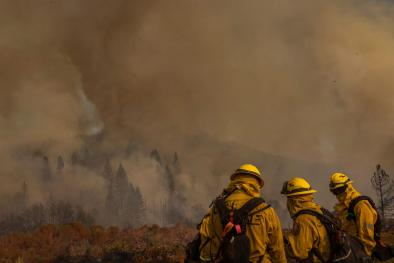Study: Climate Change Will Make Dangerous Heat Indices Far More Common

Dangerously hot days will occur at least three times more frequently as climate change drives up temperatures, a study published in Communications Earth & Environment finds. Earth's mid-latitudes will see a three- to ten-fold increase in days with a heat index of 103°F if global temperatures increase 2°C — the less ambitious goal set out in the Paris Agreement. The tropics could fare even worse, experiencing a heat index of 103°F “during most days of each typical year” by 2100. All of these probabilities mean Chicago, which hit a heat index of 103°F just four times between 1979 and 1998, would be hitting that dangerous threshold 11 times every year by the end of this century. “As the heat index rises, it becomes harder and harder to cool our bodies,” Dr. Renee Salas, a Harvard School of Public Health professor and emergency room physician not involved in the study, told the AP. “Heat stroke is a potentially deadly form of heat illness that occurs when body temperatures rise to dangerous levels.” Extreme heat indices are especially dangerous for postal and delivery workers.
(Heat index study: AP, The Hill, The Guardian, Inside Climate News, The Conversation; Delivery workers: E&E News; Northern Australia: The Guardian)
(Climate Signals background: Extreme heat and heatwaves)
To receive climate stories like this in your inbox daily click here to sign up for the Hot News Newsletter from Climate Nexus:
Related Content



